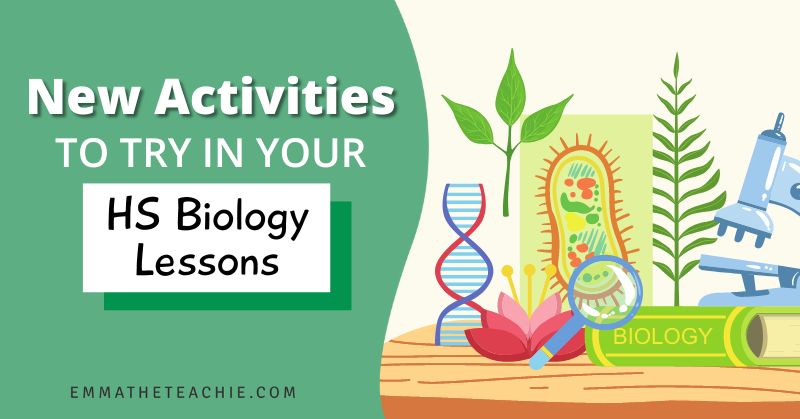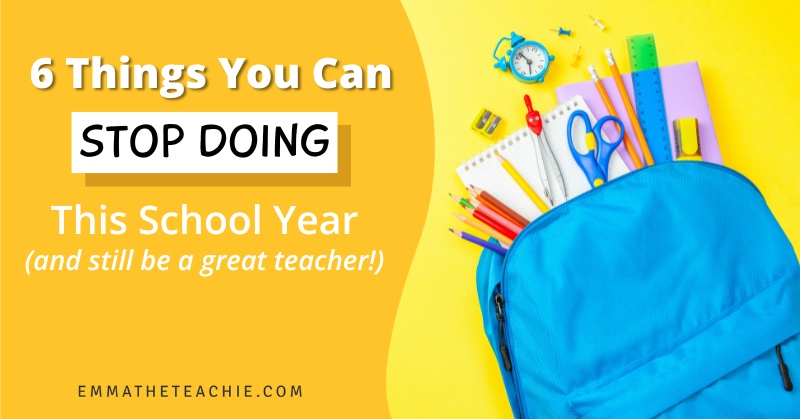
6 Things You Can Stop Doing This School Year (And Still be a Great Teacher!)
We all know that being a teacher is an incredibly fulfilling, but demanding, profession.
There is just so much to do!
With long hours, continuous planning, and the pressure to meet various expectations, it’s easy to become overwhelmed.
But I’ve got a little secret… you DON’T HAVE TO DO IT ALL!
Yes, there are certain things you can stop doing this school year AND STILL be an absolutely amazing educator.
Let’s explore six areas where you can lighten your load and still shine bright in the classroom.

1 – Stop overloading on extracurriculars
While extracurricular activities are undoubtedly valuable, it’s essential to strike a balance.
Taking on too many clubs, committees, or coaching responsibilities can leave you drained and, ultimately, affect your teaching quality.
It’s important to prioritize your involvement and choose activities that align with your own passions and interests. By doing so, you’ll be able to give your best to these activities and maintain your enthusiasm throughout the year!
Take Action: Choose one extra curricular to prioritize this year, and say no to the rest.
Remember, quality engagement is more important than quantity.
By focusing on a few extracurricular activities, you can provide meaningful experiences for your students inside and outside the classroom, while making a lasting impact on their lives.
Additionally, by avoiding overcommitment, you’ll have sufficient time to recharge and maintain your own well-being.

2 – Stop micromanaging every little detail
As teachers, we often feel compelled to control every aspect of our students’ learning experience within our classrooms.
However, micromanaging every detail is exhausting and one of the main causes of teacher burn out. Remember, it is impossible to pour from an empty cup.
While it is important to have a well planned lesson, this doesn’t need to be incredibly detailed. Leave creative space to adapt your lesson as required.
Take Action: Try planning a lesson in just 5 minutes and see what happens – I think you’ll be surprised at just how well it goes, and look at that – you gained A TON of time back!
Not only does micromanaging harm your well-being, it can hinder your students’ growth and independence. Trust in your students’ abilities and give them the reins in the classroom!
Allow students to take ownership of their projects, assignments, and classroom routines.
By stepping back and allowing students to take the lead, you not only alleviate your workload but also nurture their self-confidence and lifelong learning skills!
That’s what I call a win-win.

3 – Stop being the only provider of knowledge
Let’s keep this list going!
This year is the time to LET GO of the notion that you must be the sole source of information in the classroom.
Seriously – we do not need to stand at the front and lecture every lesson!

Try to embrace the role of a facilitator, and encourage students to actively engage in their learning process.
There are so many tools and strategies available to use in our lessons that help students get knowledge and ideas from other sources.
My favorites:
- stations
- scavenger hunts
- Independent learning activities (read 5 Ways to Turn Your Students into Independent Learners)
- group discussions
- educational videos – (read Top 10 YouTube Channels for Biology class)
- collaborative activities – e.g. the Jigsaw method (read about it in this blog post)
- extended projects that promote peer-to-peer learning
By facilitating a student-centered approach, you cut down on teacher talk, and increase the active learning happening in your classroom.
(Another win-win!)
There are also some great technological tools that promote collaborative learning. For example, Google’s Jamboard is a really cool collaborative whiteboard tool!
Here is a YouTube video that shows how Jamboard works.
Another great tool is EdPuzzle – this lets you put questions in the middle of YouTube videos. This has proven really popular with educators, and Google is working on their own version of this.
Take Action: Look at this week’s lessons and assess each one – are you facilitating or leading each lesson? Shift the balance towards facilitating, by modifying just one lesson.
When you become a facilitator, you create a dynamic and engaging classroom environment that encourages active participation and fosters a love for learning!

4 – Stop the endless grading and excessive paperwork
Who loves grading?!
*insert cricket noises*
That’s what I thought.
Grading is a critical aspect of teaching; however, it shouldn’t consume all of your time.

Work on finding strategies to streamline your grading process, such as providing formative feedback during class discussions, using peer assessment, or implementing self-assessment techniques.
Using alternative modes of assessment will help to alleviate the burden of grading and promote student engagement and self-reflection.
Talk about multi-tasking!
For the items that must be graded, try to find some automatic grading options. We are in the age of technology and there is so much out there. I’m a big fan of Google Forms Quizzes, which can be set up to self-grade. Read 5 Reasons Why You Should Be Using Google Forms Quizzes here.
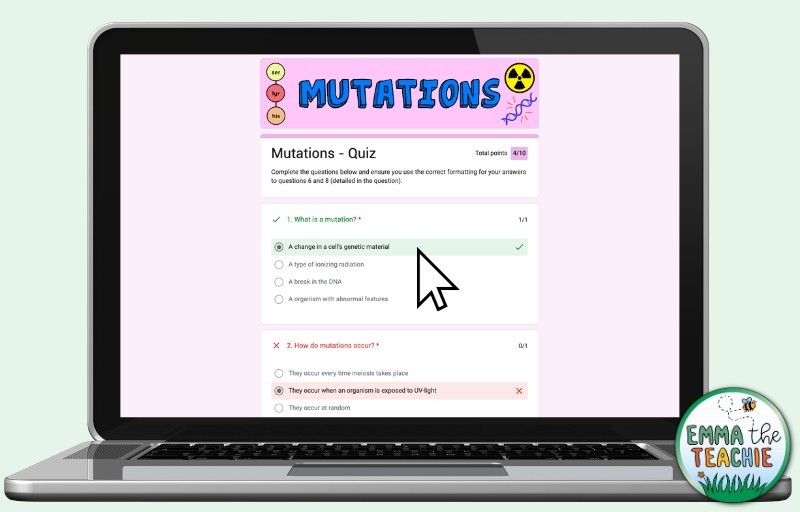
It’s also important to remember that the quality of feedback matters more than the quantity of assignments graded!
Take Action: create a plan to reduce your grading and stick to it.
By providing timely and constructive feedback, you are supporting student growth, while saving time for other essential areas of teaching.
5 – Stop neglecting self-care for yourself
Hands down, I think this is the most important thing to stop doing.
Teaching is a demanding profession and you need to make sure you are taking care of yourself.
Self-care is not selfish.
Let’s repeat that again.
Self-care is NOT selfish.
Taking care of yourself is necessary if you want to be a great teacher.
Schedule self-care activities – such as exercise, hobbies, spending time with loved ones, and relaxation – into your daily routine. If it’s penciled in, you are more likely to do it.
Work on setting boundaries between your professional and personal life, allowing yourself time to recharge and rejuvenate when you are away from the classroom.
This can be a time boundary, e.g. no more work after 6pm, or it can be a physical boundary, e.g. school books or papers cannot be brought home – they must all be graded at school.
Practicing self-care and maintaining a healthy work-life balance will enable you to bring your best self into the classroom.
Treating your physical and mental well-being as a non-negotiable will not only improve your overall happiness and satisfaction, but also enhance your teaching effectiveness.
Take Action: write a list of all of the self-care routines you would like to have. For each one, decide when and how it will happen – put a date and time against it in your planner. Then prioritize it. Do it when your planner says you are doing it!
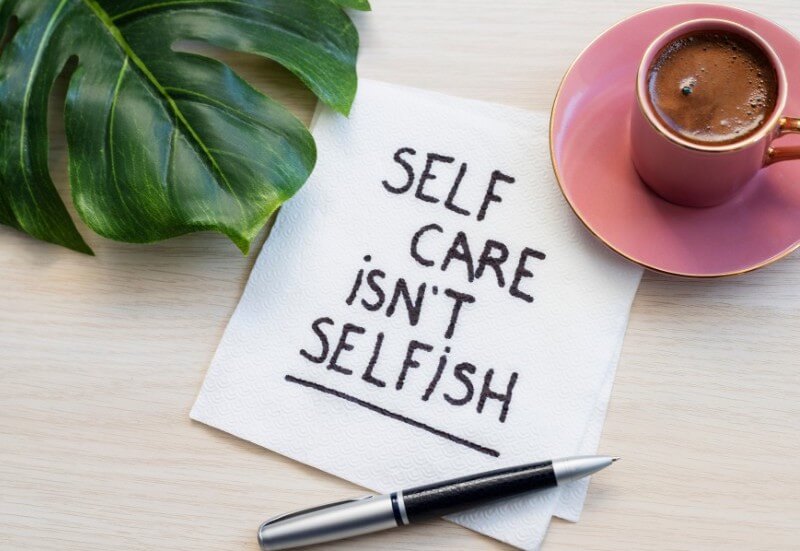
6 – Stop trying to be the perfect teacher
No one is perfect. There is no such thing as a perfect teacher – regardless of what Pinterest and Instagram show us.
Don’t rely on social media – it’s a highlight reel.
That’s a fact.
Perfectionism can be a significant source of stress and burnout for teachers. Simply put, striving for perfection is an unattainable goal and a waste of your valuable resources.
Reframe your thinking and just focus on being the best version of yourself as a teacher. You can do this by recognizing and embracing your strengths, acknowledging your areas for growth, and being open to learning from your experiences.
Allow yourself to make mistakes and view them as opportunities for growth and improvement.
Don’t be afraid to ask colleagues for help, participate in professional development opportunities, and engage in reflective practices to enhance your teaching skills.
If you let go of the pressure to be perfect, you will create a healthier and more positive teaching environment for yourself and your students.
Take Action: Unfollow any social media accounts that make you feel like you aren’t a great teacher. If you like motivational quotes, print out a couple of your favorites and put them up in your classroom. These are for you, and your students!
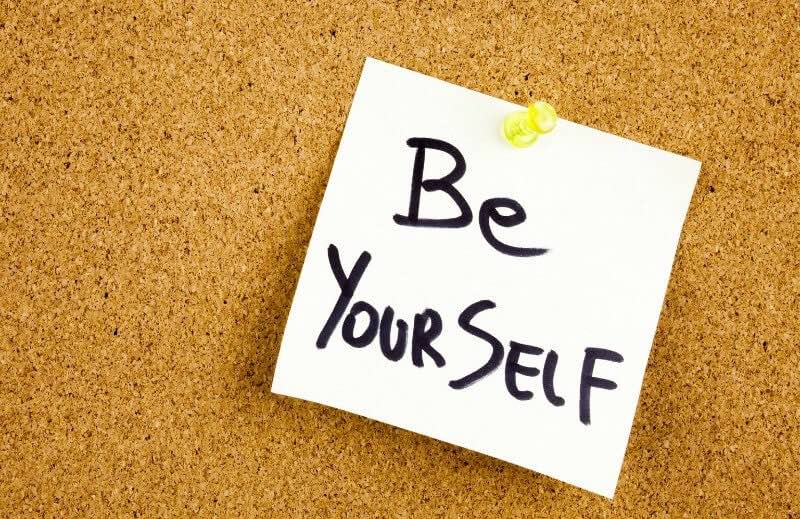
This year will be different
Hopefully you have realized that being a great teacher doesn’t mean doing it all. By reassessing your priorities and eliminating certain tasks from your plate, you can free up time and energy to focus on what truly matters—creating meaningful learning experiences for your students.
By letting go of things, you can actually become a more effective and happy teacher.
Remember, teaching is a journey of continuous growth and learning. By making deliberate choices about where to invest your time and energy, you can strike a better balance between your personal and professional life.
So, what can you do today?
Pick two things from this list and make a note to STOP DOING THEM! Go one step further, and use the “Take Action” tips to achieve this.
Trust me, just cutting out one or two unnecessary daily tasks will save you SO much time this year.
I hope you have a wonderful school year, being the great teacher you are.

